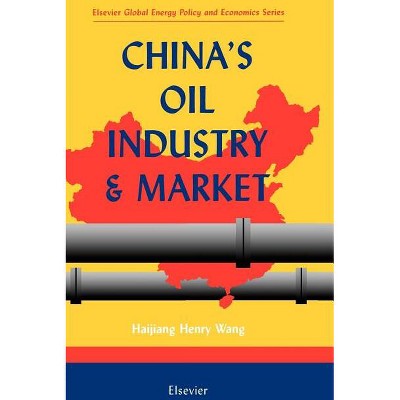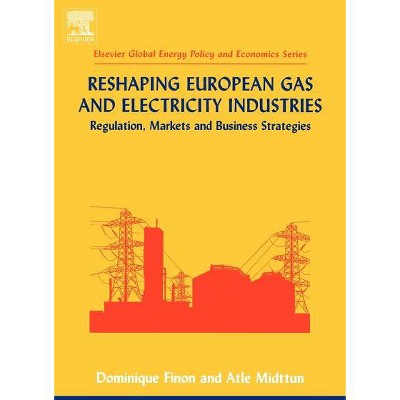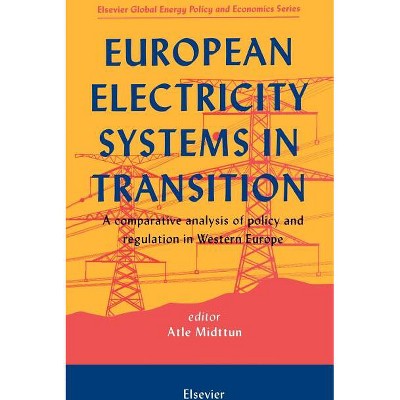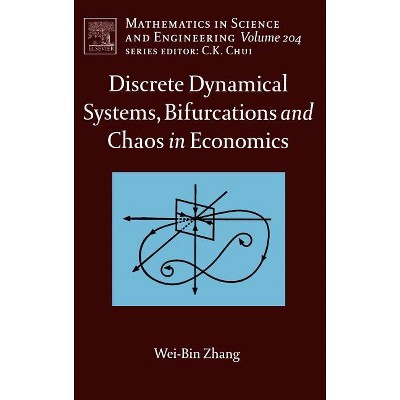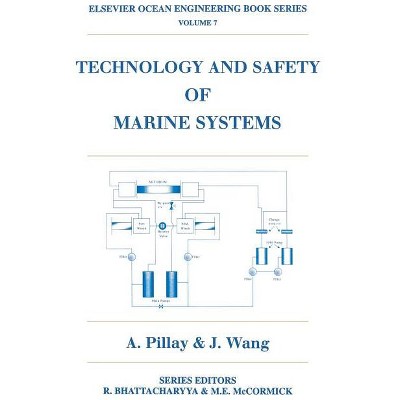Sponsored

Agile Energy Systems - (Elsevier Global Energy Policy and Economics) by Woodrow W Clark II & Ted Bradshaw (Hardcover)
In Stock
Sponsored
About this item
Highlights
- Empowering decision makers by setting the vision for a new approach to energy systems and providing the tools and plans to achieve these objectives Provides specific and actionable public policy and programme tools Help solve energy issues worldwide by illustrating how the lessons learned from the California energy crisis can be used to create an agile energy system for any region in a country Due to the recent catastrophic energy system failures in California along with those in the North-Eastern US and Southern Canada, London, and Italy, the time has come to proclaim the failure of deregulation, privatization or liberalization and propose a new energy system.
- Author(s): Woodrow W Clark II & Ted Bradshaw
- 510 Pages
- Business + Money Management, Industries
- Series Name: Elsevier Global Energy Policy and Economics
Description
Book Synopsis
- Empowering decision makers by setting the vision for a new approach to energy systems and providing the tools and plans to achieve these objectives
- Provides specific and actionable public policy and programme tools
- Help solve energy issues worldwide by illustrating how the lessons learned from the California energy crisis can be used to create an agile energy system for any region in a country
Due to the recent catastrophic energy system failures in California along with those in the North-Eastern US and Southern Canada, London, and Italy, the time has come to proclaim the failure of deregulation, privatization or liberalization and propose a new energy system. Agile Energy Systems shows in the first section, how five precipitating forces led to the deregulation debacle in California: (1) major technological changes and commercialization, (2) regulatory needs mismatched to societal adjustments, (3) inadequate and flawed economic models, (4) lack of vision, goals, and planning leading to energy failures, and (5) failure and lack of economic regional development.
The second half of the book examines how "civic market", new economic models, and planning for a sustainable economic environment counteracted these five forces to create an "agile energy system". This system is based on renewable energy generation, hybrid or combined and distributed generation technologies. Such an agile system can be a new paradigm for both energy efficiency and reliability for any region or country, in contrast to the brittle centralized energy grid systems created by deregulation. Furthermore, the book overviews how the future of energy systems rests in the emerging "clean" hydrogen economy.
Review Quotes
"This book, is literature for a broad range of readers from public and private energy companies to policy makers to energy engineer who are interested particularly in the integration of energy policy with sustainable development".... "The authors are academics and researchers in renewable energy issues with international perspectives." --W.W. Clark 2, Ted Bradshaw, Elsevier Press, 2004. Agile Energy Systems: Global Lessons from the California Energy Crisis
Shipping details
Return details
Frequently bought together

Trending Non-Fiction











